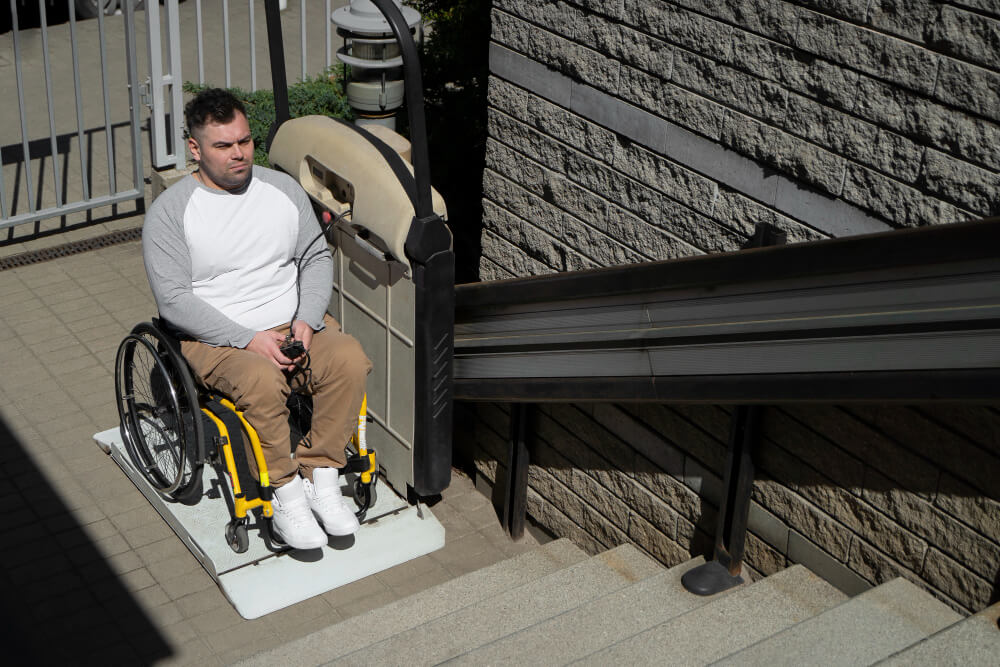A federal law, the Fair Housing Act (FHA), covers seven federally protected classes against housing discrimination based on their race, color, religion, gender, national origin, marital status, or disability.



In this blog, we will focus specifically on the provisions related to disabled persons and the concept of reasonable accommodation under the Fair Housing Act.
FHA Protects Disabled: Equal Housing for All
The Fair Housing Act, which was first passed in 1968 and later amended in 1988, is a landmark piece of legislation aimed at ensuring equal access to housing opportunities for all Americans.
One of its key provisions is prohibiting discrimination against individuals with disabilities.
Under the FHA, it is illegal for housing providers, including landlords and property managers, to discriminate against people with disabilities in any aspect of housing, including renting, selling, and financing.
Definition of Disability under Fair Housing Act
According to the Fair Housing Act, a person with a disability is defined as an individual:
- With a physical or mental impairment that substantially limits one or more major life activities.
- Who is regarded as having such an impairment, or
- Has a record of such an impairment.
What is Reasonable Accommodation
Reasonable accommodation is a fundamental concept within the Fair Housing Act that requires housing providers to make necessary changes or exceptions in their policies, practices, or services to accommodate the needs of disabled individuals.
These accommodations are intended to ensure that disabled individuals have equal access to housing opportunities and can enjoy the same benefits and privileges of housing as non-disabled individuals.
Key Elements of Reasonable Accommodation
- Necessity: To request reasonable accommodation, the disabled person must establish that it is necessary to have the accommodation for them to use and enjoy the housing. This necessity can vary from person to person and is often determined on a case-by-case basis.
- Reasonable: The accommodation requested must be reasonable. This means that it should not impose an undue financial or administrative burden on the housing provider.
Therefore, understanding the difference between Reasonable vs. Unreasonable accommodation requests is crucial. However, it’s important to note that the burden of proof for demonstrating that an accommodation is unreasonable rests on the housing provider.
- Effective: The accommodation must effectively address the individual’s disability-related needs. It should give them the same opportunities and benefits as individuals without disabilities.
Examples of Reasonable Accommodation for Disabled
- Accessible Parking: If a disabled tenant requires an accessible parking space due to mobility issues, the housing provider should make reasonable efforts to provide them with a designated accessible parking spot.
- Service Animals: The FHA requires housing providers to make exceptions to pet policies to accommodate individuals with disabilities who require service animals or emotional support animals as a reasonable accommodation. This creates a delicate balance for landlords, as while many allow pets, pet-related violations can arise. Landlords must navigate enforcing these rules while also abiding by fair housing regulations.
- Ramp Installation: If a tenant uses a wheelchair and the property has steps at the entrance, the housing provider may be required to install a ramp to provide wheelchair accessibility.
- Installing visual-alerting fire alarms and doorbells: For people with hearing impairments, traditional audio alarms for dangers like fires may not be effective. Visual alerting systems ensure that everyone, regardless of their hearing ability, is promptly alerted to emergencies, increasing safety for all occupants.
- Installing accessible door handles: Individuals with limited hand strength or agility may find traditional door knobs challenging to operate. Switching these knobs for accessible flat handles can simplify the process of opening and closing doors. Lever handles, for example, allow doors to be opened with a simple push down or an elbow press, requiring minimal hand strength.
- Lowered toilets and accessible faucets: Regular toilets and faucets can be tough for people with limited mobility. Lower toilets make it easier to transfer from a wheelchair and lever or touchless faucets are easier to use for people with weak hands.
- Modified Lease Terms: In some cases, a disabled tenant may require a modification of lease terms, such as a waiver of a no-pet policy or a specific lease end date, to accommodate their disability. Understanding these potential modifications during the lease signing process can help ensure a smooth transition for the tenant.
Some other examples of reasonable accommodations include lowered countertops and cabinets, walk-in showers, Visual doorbells, Widening doorways etc.
Steps for Requesting a Reasonable Accommodation Based on a Disability
To request a reasonable accommodation under the Fair Housing Act, a disabled individual typically needs to follow these steps:
- Notify the Housing Provider: The individual should inform the housing provider of their disability and the specific accommodation they need. This notification is usually done in writing.
- Provide Documentation: In many cases, the housing provider may request documentation from a healthcare provider to verify the disability and the need for the requested accommodation.
- Engage in Dialogue: Engaging in a faith interactive process with good communication from the housing provider and tenant to discuss the accommodation request and find a reasonable solution that meets the individual’s needs while considering the housing provider’s obligations is crucial.
Conclusion
Reasonable accommodation is a vital component of the Fair Housing Act, ensuring that individuals with disabilities have equal access to housing opportunities.
Housing providers are legally obligated to make reasonable adjustments to policies, practices, or services when necessary to accommodate the needs of disabled individuals.




